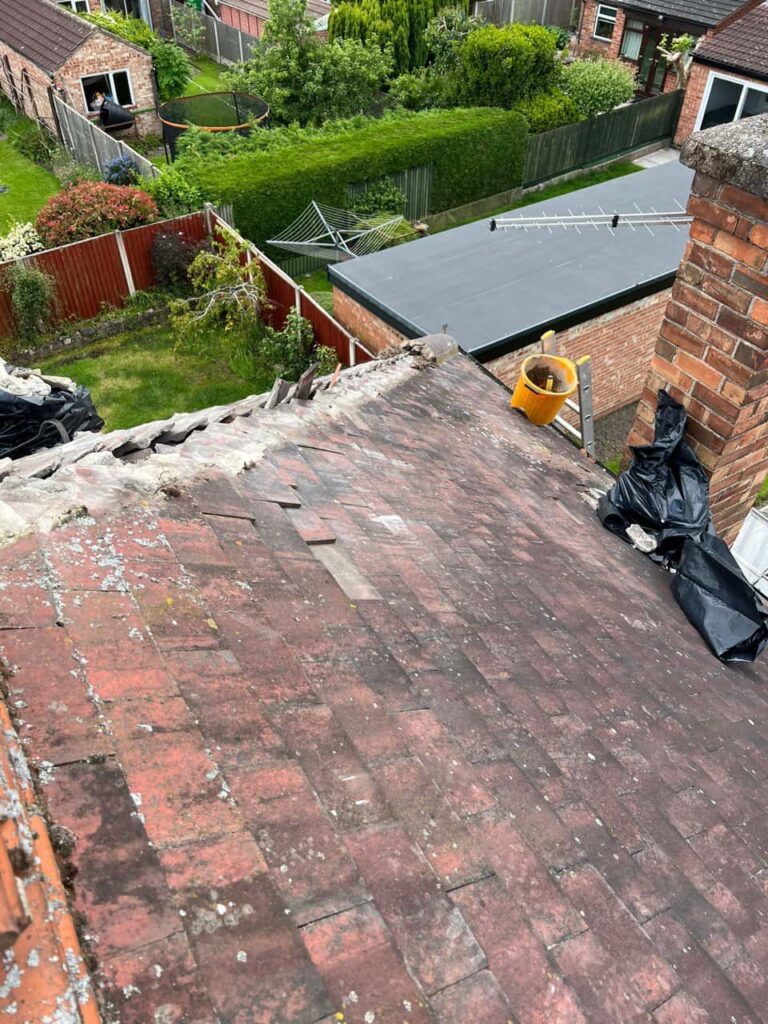Introduction: Choosing the right contractor is crucial when installing or repairing a flat roof. The quality of the workmanship will significantly impact the durability and longevity of your roof, as well as the overall safety and value of your property. Here at Heanor Roofing Repairs, we understand the importance of making an informed decision when selecting a roofing contractor. In this blog post, we will guide you through the key considerations to help you choose the right flat roof contractor for your needs.
1. Check for Proper Licensing and Insurance
The first step in selecting a flat roof contractor is to ensure they have the necessary licences and insurance. This guarantees that the contractor operates legally and provides protection for both parties.
- Licences: Verify that the contractor holds the appropriate licences required by local authorities. This indicates they have met the necessary standards and regulations.
- Insurance: Ensure the contractor has comprehensive insurance, including public liability and workers’ compensation. This protects you from any liability in case of accidents or damage during the project.
2. Experience and Expertise
Experience is a key factor when choosing a flat roof contractor. Look for contractors with a proven track record in flat roofing projects.
- Years in Business: Contractors with several years of experience will likely have the knowledge and skills required to handle various roofing challenges.
- Specialisation: Ensure the contractor specialises in flat roofs, as they require specific techniques and materials different from pitched roofs.
3. Reputation and Reviews
A contractor’s reputation can provide valuable insights into their reliability and quality of work.
- Online Reviews: Check online review platforms, such as Google, Trustpilot, or Checkatrade, for feedback from previous clients. Look for consistent positive reviews and note any recurring issues.
- References: Ask the contractor for references and contact previous clients about their experiences. This can give you a clearer picture of what to expect.
4. Quality of Materials
The quality of materials used in flat roofing projects directly impacts the roof’s performance and lifespan.
- Material Options: A reputable contractor should offer a range of high-quality materials, such as EPDM, TPO, and PVC. They should also be able to explain the pros and cons of each option.
- Supplier Relationships: Contractors with strong relationships with reputable suppliers are likelier to use genuine, high-quality materials.
5. Detailed Quotations
Transparency in pricing is essential to avoid any surprises down the line.
- Written Quotations: Request detailed written quotations from potential contractors. This should include labour, materials breakdown, and additional costs.
- Comparisons: Compare quotes from multiple contractors to ensure you get a fair and competitive price. Be cautious of quotes that are significantly lower than others, which could indicate subpar materials or workmanship.
6. Warranty and Aftercare
A reliable contractor will stand by their work and offer warranties to give you peace of mind.
- Workmanship Warranty: Ensure the contractor provides a warranty on their workmanship. This covers any issues that arise due to installation errors.
- Material Warranty: Verify the warranties provided for the roofing materials used. High-quality materials typically come with longer warranties.
7. Communication and Professionalism
Effective communication and professionalism are key to a smooth roofing project.
- Responsiveness: A good contractor should be responsive to your inquiries and provide clear, timely communication throughout the project.
- Professionalism: Assess the contractor’s professionalism during initial interactions. This includes punctuality, courtesy, and the ability to answer your questions comprehensively.
8. Local Knowledge
Choosing a local contractor can offer several advantages.
- Understanding of Local Regulations: Local contractors are more likely to be familiar with local building codes and regulations, ensuring compliance.
- Accessibility: Local contractors can respond more quickly to issues or follow-up requirements, providing better aftercare service.
Conclusion: Choosing the right flat roof contractor ensures a high-quality, durable roofing solution. By considering factors such as licensing, experience, reputation, material quality, detailed quotations, warranties, communication, and local knowledge, you can make an informed decision and select a trustworthy contractor.
Call us on: 01773 300 896
Click here to find out more about Heanor Roofing Repairs
Click here to complete our contact form and see how we can help you with your roofing needs.

